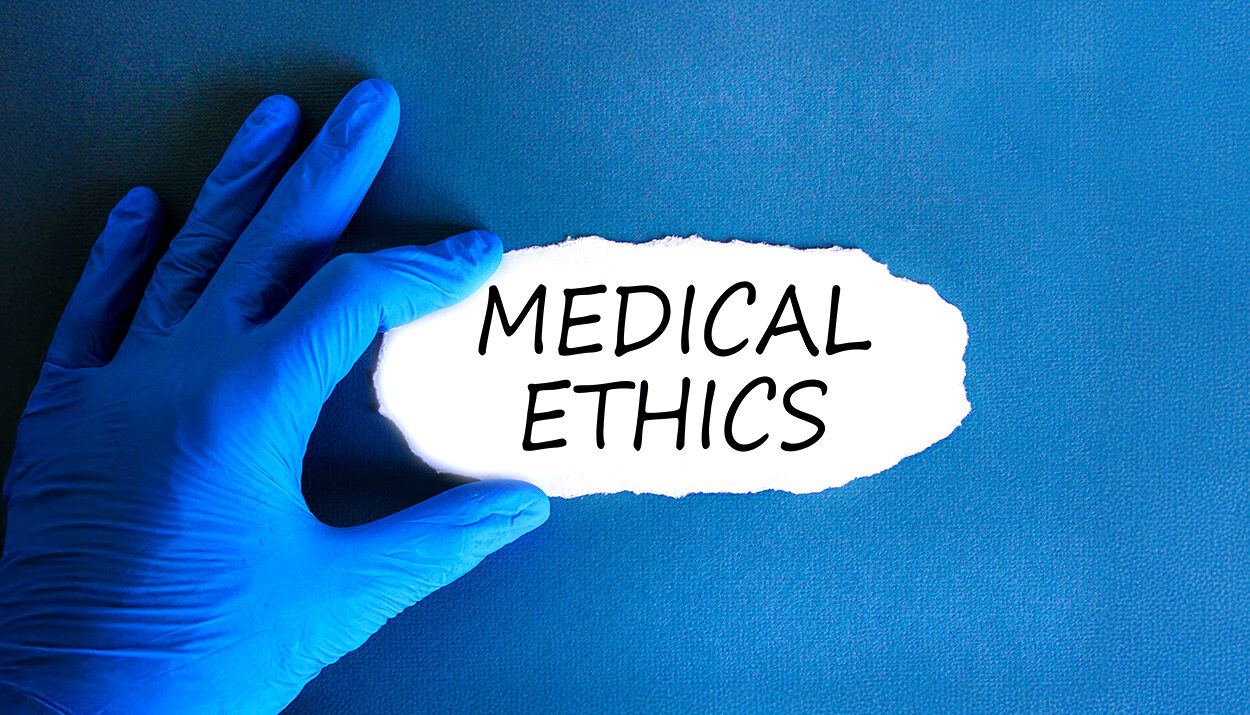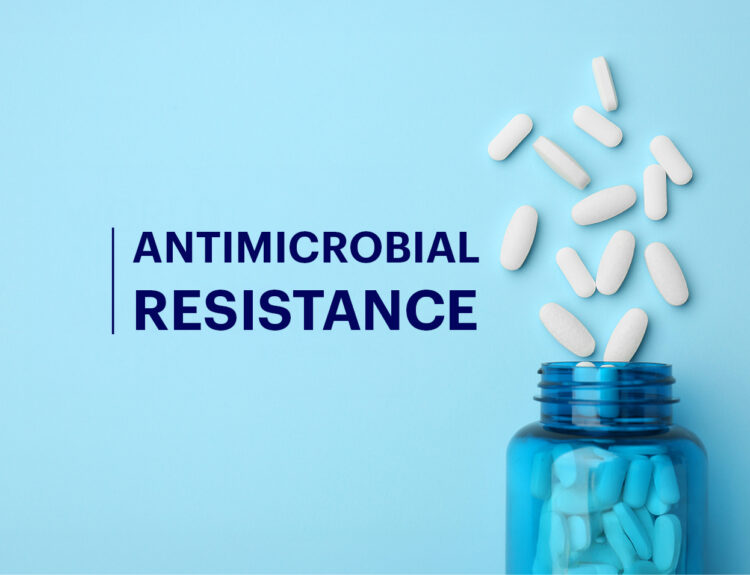Modern medicine has undoubtedly revolutionized the way we diagnose, treat, and prevent diseases, ushering in an era of unprecedented innovation and hope. From gene editing and artificial intelligence in diagnostics to life-extending organ transplants and personalized therapies, the boundaries of what is medically possible continue to expand. Yet, with every leap forward, healthcare professionals as well as allied healthcare professionals encounter new and complex ethical issues in healthcare.
Questions about patient autonomy, data privacy, equitable access to advanced treatments, and the moral limits of scientific intervention have become increasingly urgent. As medical technology races ahead, society is often left to catch up, grappling with how to balance progress with compassion, innovation with integrity, and possibility with principle. Can modern medicine’s most pressing ethical dilemmas be unraveled, or are they an inevitable part of humanity’s pursuit of healing and discovery? Read on to learn more.
What are Ethical Issues in Healthcare?
Ethical issues in healthcare arise when medical professionals must make decisions that involve balancing competing interests, responsibilities, and potential outcomes. These situations often require careful moral judgment to ensure patient welfare while upholding professional integrity.
Four core principles commonly guide ethical decision-making in healthcare:
- Autonomy: Respecting patients’ rights to make informed decisions about their own care.
- Beneficence: Acting in the best interest of the patient.
- Non-maleficence: Avoiding harm to patients.
- Justice: Ensuring fair treatment and equitable allocation of healthcare resources.
A strong understanding of these principles helps healthcare professionals navigate complex ethical dilemmas while maintaining trust, accountability, and the highest standards of care.
Key Ethical Issues in Healthcare
Some of the most common ethical issues in healthcare include:
- Patient confidentiality: Protecting sensitive medical information.
- Informed consent and patient rights: Ensuring voluntary, informed participation in care.
- End-of-life decisions: Balancing dignity, suffering, and legal considerations.
- Resource allocation: Prioritizing treatment fairly under scarcity.
- Equity and access to care: Addressing disparities in healthcare availability.
- Insurance and financial conflicts: Navigating ethical tensions between coverage and treatment.
These scenarios demonstrate why understanding the importance of medical ethics is crucial for clinicians in day-to-day practice.
Ethical Dilemmas in Healthcare: Examples and Solutions
Healthcare professionals often face complex scenarios that test their judgment, values, and ethical principles. Medical ethics provide a framework to navigate these situations, ensuring that patient care remains respectful, just, and responsible.
Let us explore some examples and potential solutions:
1.Patient Autonomy vs. Beneficence
One of the fundamental medical ethics is respecting patient autonomy, which means allowing patients to make informed decisions about their own treatment. However, this principle sometimes clashes with the healthcare provider’s duty to act in the patient’s best interest (beneficence).
For instance, when a patient refuses life-saving treatment due to personal beliefs, should the healthcare provider intervene or respect the patient’s autonomy?
Striking the balance between respecting autonomy and ensuring a patient’s well-being raises profound ethical issues in healthcare today. Healthcare providers can address this dilemma through comprehensive informed consent processes. By providing patients with clear, transparent information about their condition, treatment options, and outcomes, they can empower patients to make choices aligned with their values while still ensuring medical responsibility.
Beyond communication, cultural sensitivity plays a key role. Diverse cultural backgrounds influence how patients perceive medical decisions, end-of-life choices, or autonomy. Training healthcare professionals to understand and respect these nuances helps build trust and ensures ethically sound care across diverse patient groups.
2.End-of-Life Care and Euthanasia
End-of-life decisions present another intricate ethical landscape. The question of whether to provide palliative care or permit euthanasia for patients with terminal illnesses is a deeply divisive issue. Advocates for euthanasia argue for the right to die with dignity and minimal suffering, while opponents emphasize the sanctity of life and the potential for misuse or coercion.
Encouraging individuals to engage in advance care planning can help navigate this dilemma. Healthcare professionals can initiate discussions about living wills, hospice options, and palliative approaches early in a patient’s journey. A multidisciplinary approach, involving physicians, psychologists, ethicists, and family members, can ensure decisions to respect patients’ wishes while upholding ethical integrity.
In some countries, legal frameworks around assisted dying are evolving. While nations like the Netherlands and Canada have legalized forms of euthanasia, others continue to debate its moral acceptability. This global divergence highlights how medical ethics, law, and culture intersect in shaping end-of-life care.

3. Resource Allocation and Distributive Justice
Modern medicine’s capabilities often outstrip the available resources, leading to ethical dilemmas in allocating these resources fairly. The concept of distributive justice demands that healthcare systems allocate resources equitably to all patients. However, limited resources may force providers to make tough decisions about who receives priority for treatment.
The COVID-19 pandemic underscored this dilemma vividly, as hospitals faced shortages of ventilators, ICU beds, and even healthcare personnel. Transparent and ethical criteria based on clinical urgency, likelihood of benefit, and equity must guide such decisions. Healthcare ethics committees can play a crucial role in reviewing triage protocols and ensuring fairness.
In the long term, investing in preventive healthcare, digital infrastructure, and efficient resource planning can reduce the burden on systems and minimize ethical issues in modern medicine during crises.
4. Ethical Issues in Medical Genetics
Advances in genetics have paved the way for remarkable breakthroughs in treating hereditary diseases. However, the emergence of gene-editing technologies like CRISPR-Cas9 has opened Pandora’s box of ethical issues in healthcare. While these technologies promise to eliminate genetic disorders, they also raise concerns about unintended mutations, “designer babies,” and deepen social inequality.
To address these concerns, the global scientific community must adopt robust ethical oversight and promote transparent public engagement. Establishing international standards for genetic research ensures that innovation progresses responsibly. Additionally, involving ethicists, patient groups, and cultural representatives in gene-editing discussions ensures decisions are inclusive and morally sound.
Another layer of complexity lies in genetic data ownership – who controls the information extracted from one’s genome? Ensuring that patients retain agency over their genetic data is vital to prevent misuse or discrimination in areas like insurance or employment.
5. Data Privacy and Medical Technology
The digital revolution in healthcare has enabled unprecedented use of patient data for analytics, AI diagnostics, and predictive modeling. While this has accelerated research and personalized medicine, it has also created serious privacy concerns.
Balancing innovation with confidentiality requires strict data governance frameworks. Encryption, anonymization, and limited-access protocols must become standard practice. Beyond technical safeguards, healthcare institutions should commit to transparency – patients deserve to know how their data is stored, analyzed, and shared.
As AI becomes increasingly embedded in diagnosis and treatment planning, algorithmic bias poses another ethical challenge. Biased data sets can lead to unequal outcomes across demographics. Regular auditing of AI tools for fairness and accountability is crucial for maintaining trust in medical technology.
Read here – Cross Cultural Research
6. Clinical Trials and Informed Consent
Clinical trials drive the discovery of new drugs and therapies, yet ensuring truly informed consent remains challenging. Vulnerable populations, those with limited healthcare access or education, may not fully understand the risks of participation.
To strengthen ethical integrity, researchers should use plain-language consent forms, community outreach programs, and independent advocates to ensure participant rights are upheld. Additionally, post-trial transparency, sharing results and follow-up care, builds credibility and shows respect for participants’ contribution to science.
Read about – Ethical Consideration in Research
Common Legal Issues Physicians Face
Physicians often confront legal challenges that intersect with ethics in healthcare, including:
- Malpractice claims due to negligence.
- Breaches of patient confidentiality.
- Inadequate informed consent.
- Violations of healthcare regulations or institutional policies.
Being aware of both legal obligations and ethical principles helps healthcare professionals avoid disputes and provide patient-centered, responsible care.
How to Handle Ethical Risks and Violations in Healthcare?
Handling ethical risks in healthcare requires proactive measures:
- Establish clear codes of conduct for staff.
- Conduct regular ethics training.
- Engage ethics committees for complex cases.
- Maintain open communication with patients and families.
- Implement reporting mechanisms for ethical violations.
These practices ensure adherence to ethical principles in healthcare and foster a culture of accountability and integrity.
Key Takeaways on Ethical Dilemma in Healthcare
The rapid pace of technological and medical advancements has brought with it a myriad of complex ethical issues in modern medicine. Balancing patient autonomy, the duty to provide beneficent care and the fair allocation of resources requires constant reflection and debate. As we continue to navigate these medical ethical dilemma cases, it is imperative that healthcare professionals, policymakers, ethicists and society at large engage in thoughtful conversations to ensure that medical progress aligns with ethical principles and respects human dignity. By actively implementing these solutions and engaging in continuous dialogue, the medical community can navigate the intricate web of ethical dilemmas in modern medicine. Ultimately, addressing these medical ethics example cases in modern medicine will shape the future of healthcare and the well-being of individuals around the world.
CONTRIBUTE YOUR EXPERTISE

Register with MDForLives to participate in healthcare surveys and improve healthcare!
The fast pace of medical advancements presents numerous ethical issues in healthcare. Respecting autonomy, promoting beneficence, ensuring justice, protecting privacy, and addressing legal concerns are all central to health care ethics. Continuous education, open dialogue, and ethical oversight are essential to navigate these challenges effectively.
Ultimately, the way healthcare professionals confront medical ethics issues will shape not only the future of medicine but also the broader societal commitment to compassionate, equitable, and responsible care.

MDForLives is a vibrant community of healthcare professionals and patients dedicated to shaping the future of healthcare. We provide valuable global insights to healthcare companies through online surveys, interviews, and discussion forums.






